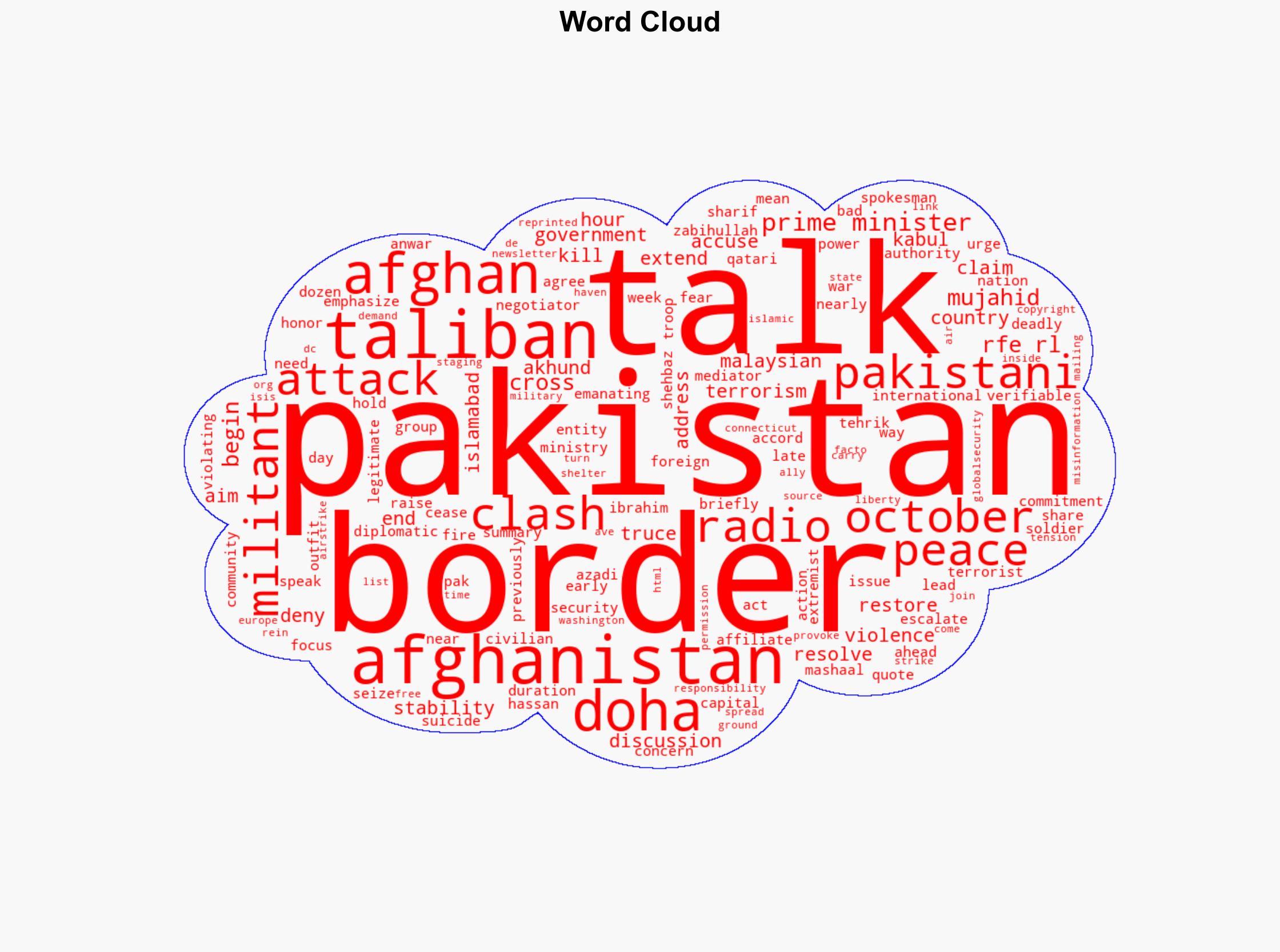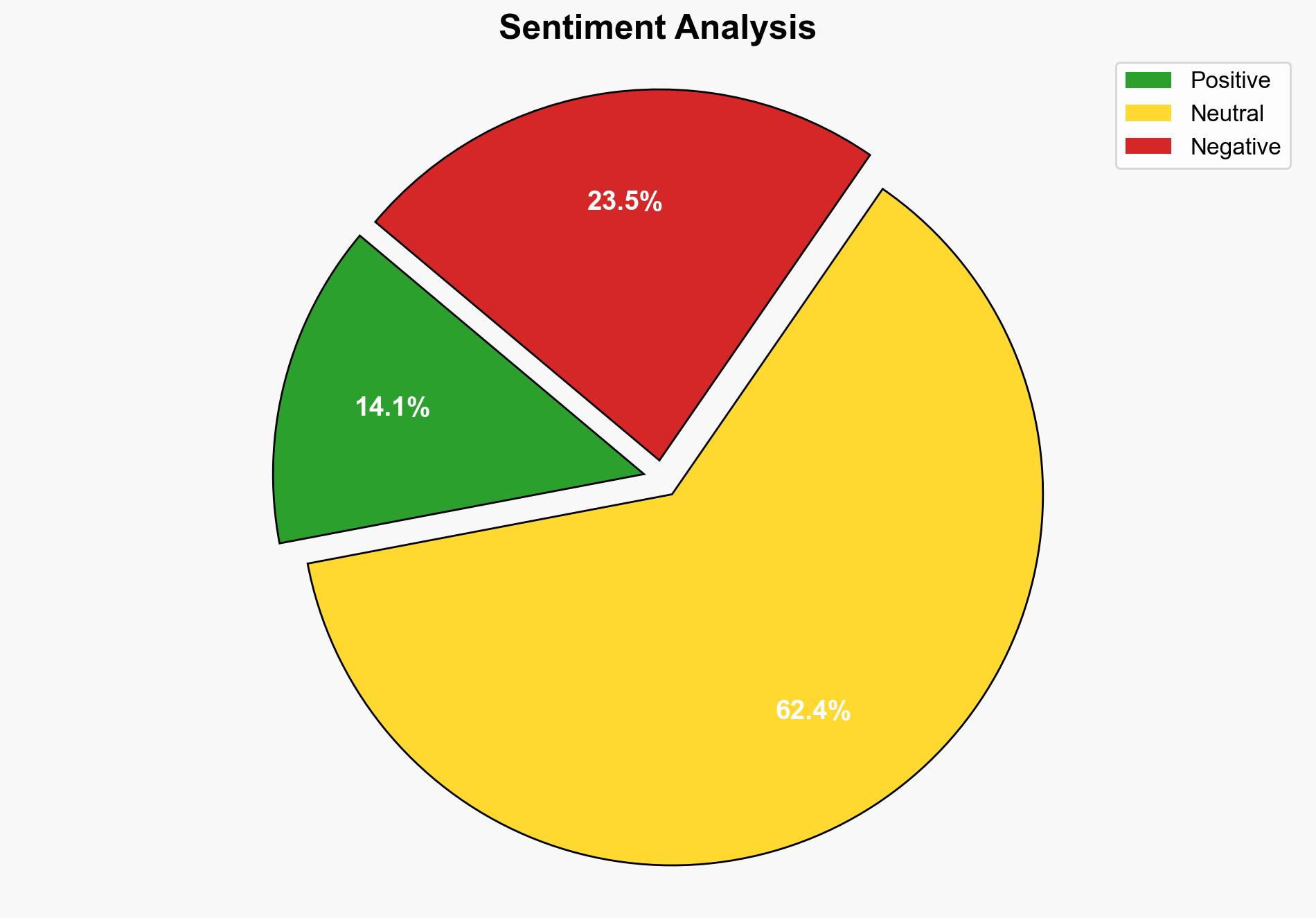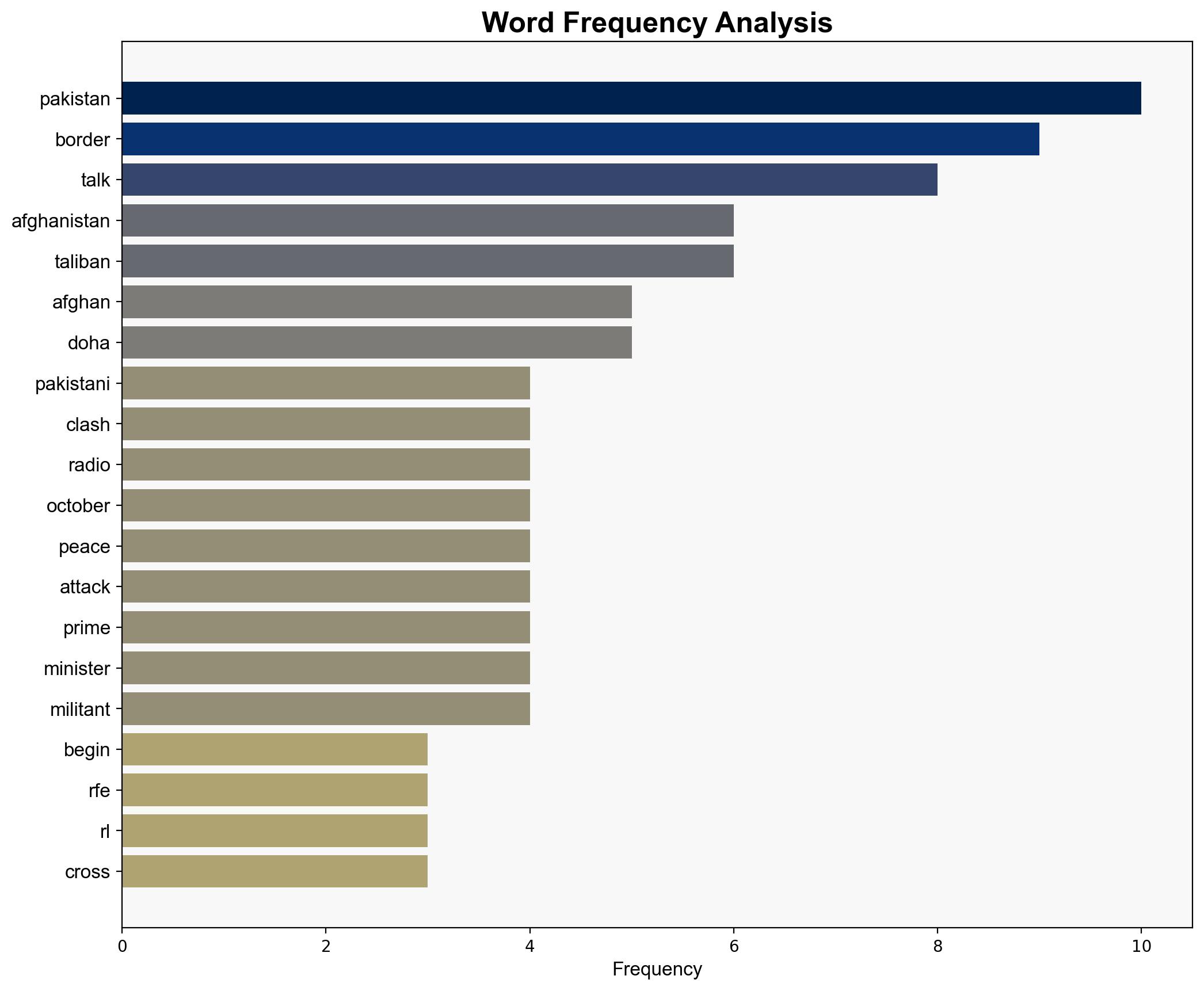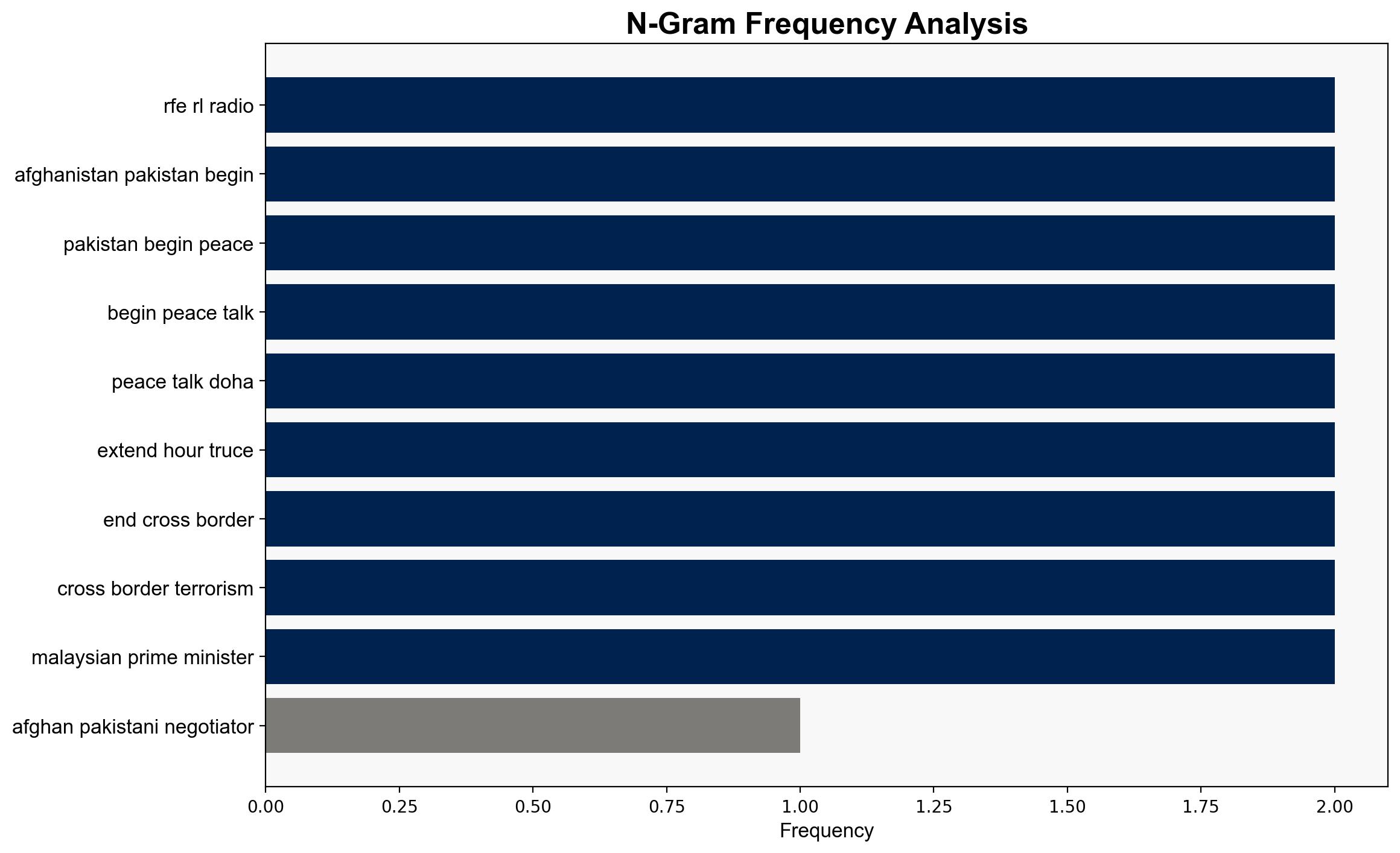Afghan Pakistani Negotiators Begin Talks In Doha After Deadly Clashes – Globalsecurity.org
Published on: 2025-10-19
Intelligence Report: Afghan Pakistani Negotiators Begin Talks In Doha After Deadly Clashes – Globalsecurity.org
1. BLUF (Bottom Line Up Front)
The most supported hypothesis is that the Doha talks are a genuine attempt to de-escalate border tensions and address cross-border terrorism, with a moderate confidence level. However, the potential for these talks to be used as a strategic delay tactic by either party remains plausible. It is recommended to closely monitor the implementation of any agreements and verify commitments through independent channels.
2. Competing Hypotheses
Hypothesis 1: The talks in Doha represent a sincere effort by both Afghanistan and Pakistan to de-escalate tensions and address cross-border terrorism. This is supported by the extension of a truce and the involvement of international mediators, suggesting a commitment to diplomatic solutions.
Hypothesis 2: The talks are primarily a strategic maneuver by one or both parties to buy time, manage international perceptions, or consolidate power domestically. The history of mutual accusations and previous failed ceasefires suggests a pattern of using negotiations as a stalling tactic.
3. Key Assumptions and Red Flags
Assumptions:
– Both parties are acting in good faith and are willing to compromise.
– The involvement of international mediators will positively influence the outcome.
Red Flags:
– Historical patterns of failed negotiations and ceasefires.
– Lack of verifiable actions taken against terrorist entities by either side.
– Potential misinformation campaigns by both parties to influence international opinion.
4. Implications and Strategic Risks
The continuation of border tensions poses risks of military escalation, affecting regional stability. Economic impacts could arise from disrupted trade routes. Geopolitical dynamics may shift if external actors, such as neighboring countries or global powers, choose sides. Cyber threats could emerge as both nations may resort to digital warfare tactics. The psychological impact on civilian populations, particularly in border areas, could lead to increased displacement and humanitarian concerns.
5. Recommendations and Outlook
- Encourage third-party verification of any agreements reached to ensure compliance.
- Enhance intelligence-sharing mechanisms between Afghanistan, Pakistan, and international partners to monitor terrorist activities.
- Scenario-based projections:
- Best Case: Successful negotiations lead to a sustainable peace agreement and reduced cross-border terrorism.
- Worst Case: Talks collapse, leading to intensified military conflict and regional destabilization.
- Most Likely: Prolonged negotiations with intermittent skirmishes and limited progress on key issues.
6. Key Individuals and Entities
Zabihullah Mujahid, Hassan Akhund, Anwar Ibrahim, Shehbaz Sharif
7. Thematic Tags
national security threats, cybersecurity, counter-terrorism, regional focus





